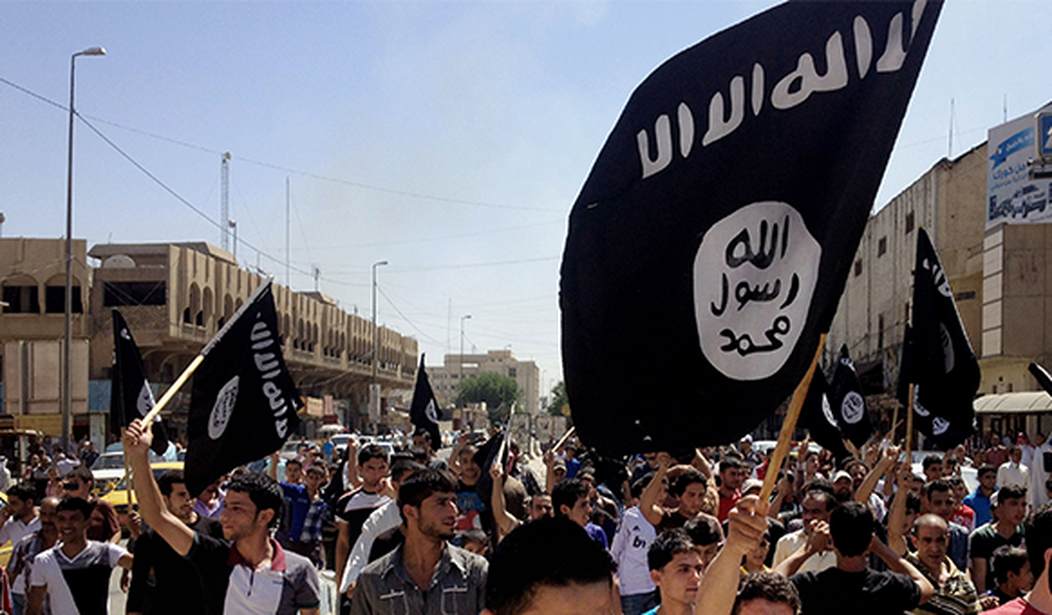Syria’s interim President Ahmed al-Sharaa will be at the White House on Monday to meet with Donald Trump. It is the first visit ever of a Syrian leader to the White House, and it comes at a fraught time in our relations with Syria and other nations in the region.
Al-Sharaa is a former al-Qaeda operative who fought America in Iraq and leads an Islamist government that is slowly consolidating power. During his visit, al-Sharaa is expected to sign on to the coalition fighting the Islamic State (ISIS).
On Friday, the State Department lifted the terrorist designation on al-Sharaa and his foreign minister. State Department spokesman Tommy Pigott said in a statement that the action "sent a strong political signal that further recognizes Syria’s transition to a new chapter.”
“These actions are being taken in recognition of the progress demonstrated by the Syrian leadership after the departure of Bashar al-Assad and more than 50 years of repression under the Assad regime,” Pigott said.
What are we doing getting into bed with this fanatic? Much of his military, according to the Middle East Forum, is ambivalent, at best, toward ISIS. When al-Sharaa's militia, Hay’at Tahrir al-Sham, was governing the Syrian state of Idlib during the Syrian civil war, he gave shelter to ISIS fighters and their families. Islamic State leader Abu Bakr al-Baghdadi was killed in a U.S. raid in Idlib, as was his successor.
We are dealing with al-Sharaa for the simple reason that Syria is a very important country, and al-Sharaa is in a position to help the United States in several areas. Near the top of our priorities is to get information on detained, missing, or dead Americans in Syria. It's also a move to counter Syria's efforts to rekindle its relationship with Russia, which still has military assets and interests in Syria.
Another top priority is the U.S.-brokered security pact between Israel and Syria. It would be a small step toward normalizing relations between the two countries, and would be huge for regional security. It would also counter Turkey's designs on Syria, which are not always in line with America's or NATO's.
The U.S. recently announced that it would establish a "military presence" at an airport in Damascus. The American military presence will be there to monitor the security agreement, as well as for "logistics, surveillance, refueling and humanitarian operations, while Syria would retain full sovereignty over the facility," Reuters reports. It's also "a sign of Syria's strategic realignment with the U.S," said the wire service.
How far that realignment goes remains to be seen. The Kurdish-led, U.S.-backed Syrian Democratic Forces who run about one-third of the country have been, "the major element of the U.S.-led efforts to combat the Islamic State over the past decade," according to the Middle East Forum.
The Syrian Democratic Forces, which controls nearly one-third of Syria’s territory, also holds thousands of Islamic State fighters and their families, including foreign nationals, in multiple detention centers and camps. If Syria formally joins the coalition, responsibility of managing these facilities would fall to the Syrian government. However, Damascus lacks the necessary capabilities, making Syrian Democratic Forces integration more important. With many countries reluctant to repatriate their citizens from these camps, any shift in security dynamics on the ground could create yet another counterterrorism challenge for the United States and its partners.
If Washington’s goal in bringing Syria into the coalition against the Islamic State is to stabilize Syria and reduce the U.S. military footprint in that country, it must ensure that its longtime partner, the Syrian Democratic Forces, remains intact in any integration with the Syrian military. The United States should also press Damascus to allocate key positions within the military to Syrian Democratic Forces commanders, particularly those specialized in counterterrorism. Only then would Syrian membership in the coalition represent a sensible step toward long-term stability for Syria and beyond.
The Syrian military is unorganized, riven by Islamist factions, and not much of a fighting force. If Syria is going to suppress ISIS and establish effective governance, it's going to need the well-trained, experienced fighters in the Syrian Democratic Forces.
So far, al-Sharaa has demonstrated little appetite for compromise with internal factions. That's going to have to change if he expects U.S. help in fighting off a resurgent ISIS and protection for his new regime.










